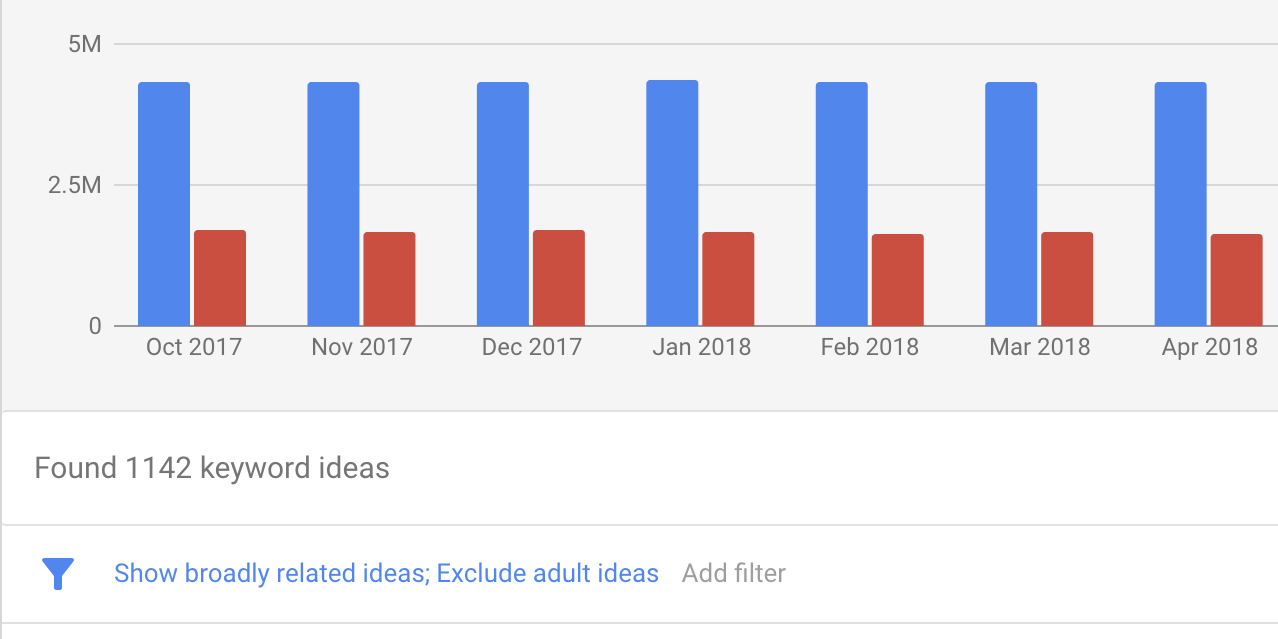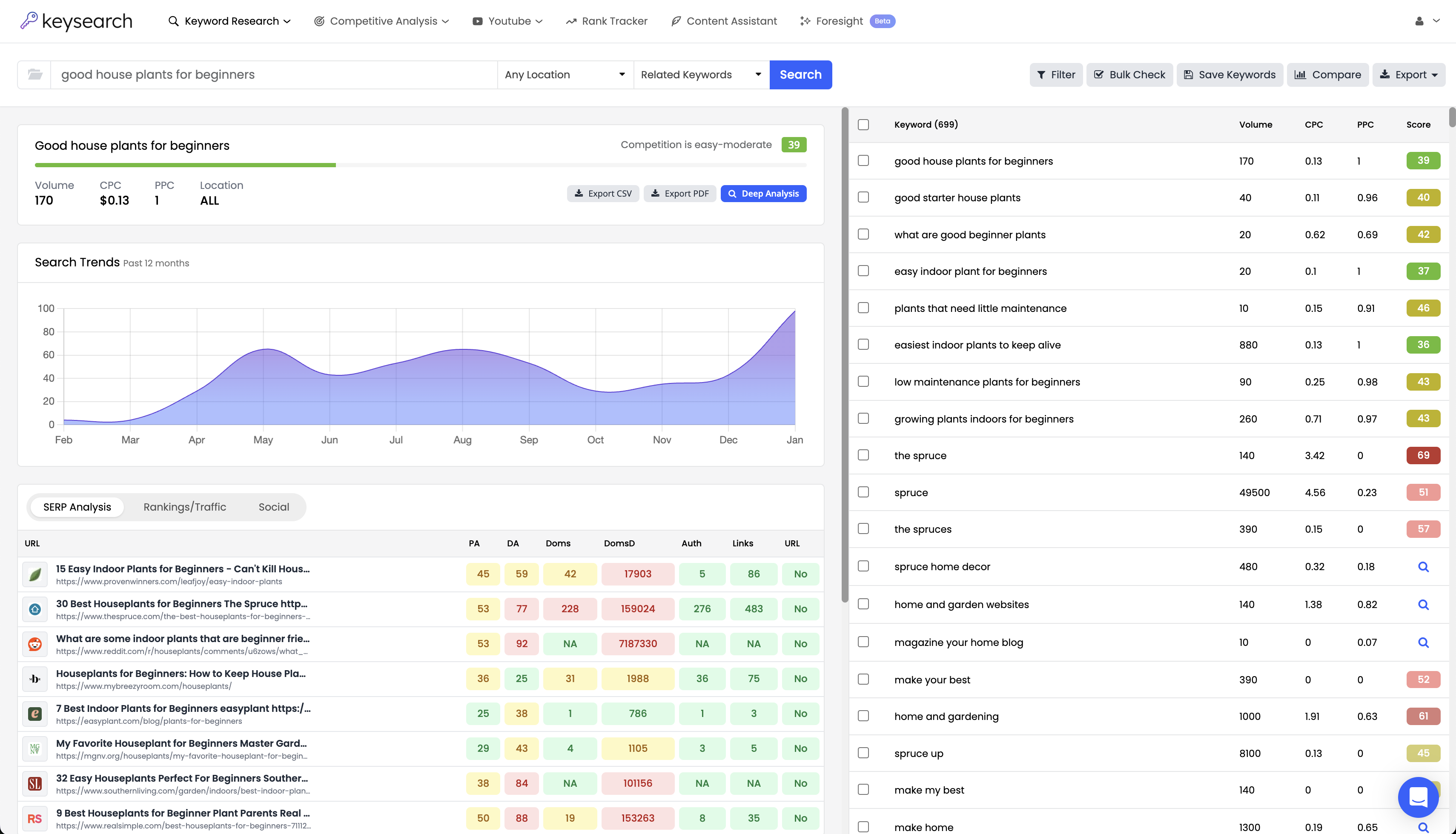We here at Keysearch are declaring the war on close variants! What are close variants you ask? Close variants are keywords that Google finds similar and has decided to group together, showing one search volume for the entire group. This has caused search volumes to become highly inaccurate for certain keywords and has made SEO trickier than ever. We’ve decided we’ve had enough and it’s time to take a stand! 🙂
The History of Close Variants
Starting back in 2016 Google began grouping similar keywords together. For example, if you check the search volume for the keywords SEO and search engine optimization, Google will return the same search volume for both. This is definitely not right.
Originally this close variant grouping wasn’t very broad. It was mostly for things like abbreviations, common misspellings, and plurals. These were also the type of searches that Google would many times automatically show you the correct results for anyway.
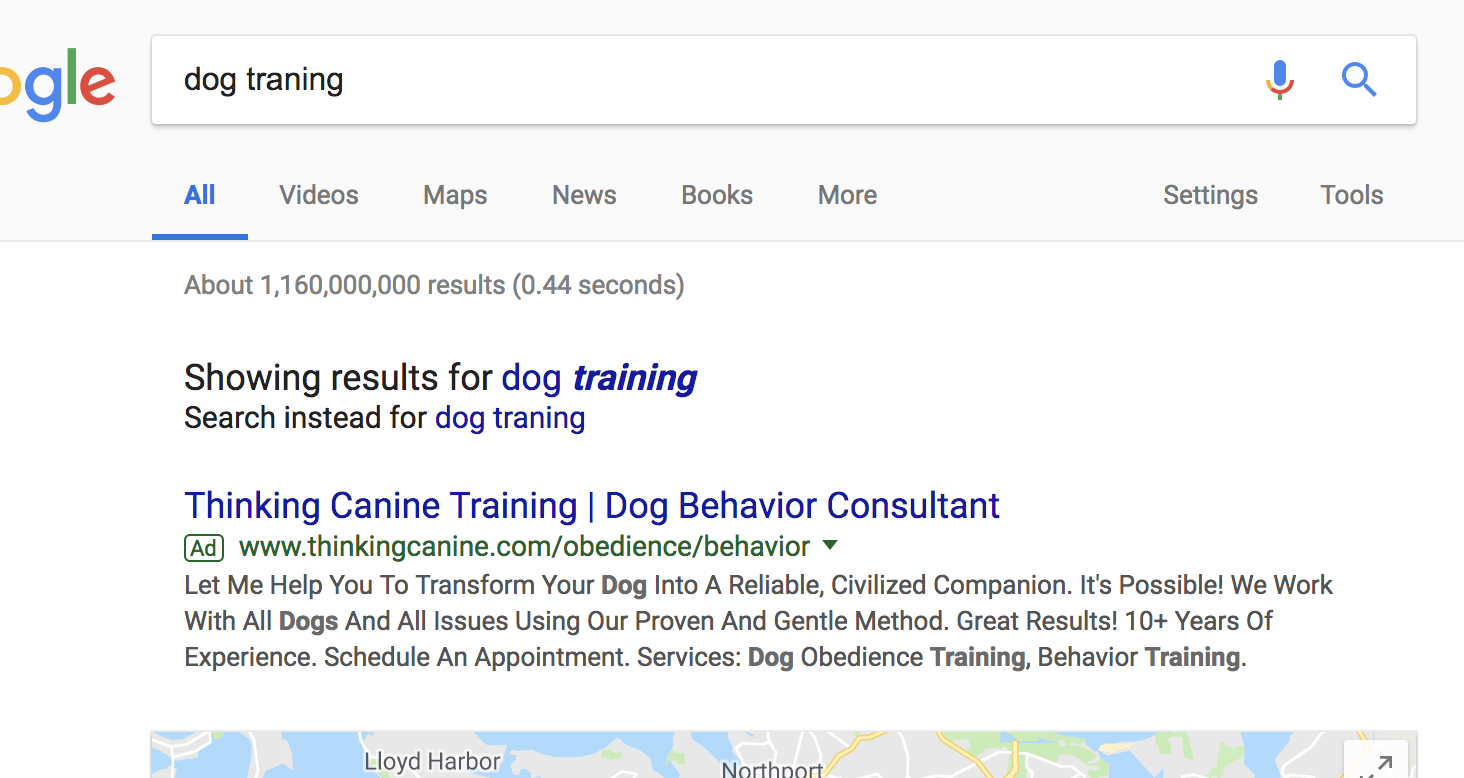
As you can see above I spelled dog training incorrectly. Google didn’t show me the results for “dog traning” spelled incorrectly. It showed me results for the correct spelling dog training.
This is why in the beginning close variants weren’t that big of a deal. Sure if I checked the Google search volume for “dog traning” and “dog training”, Google would return the same search volume for both (the correct spelling search volume), but they did the same for their search results so it wasn’t much of an issue.
As time went on though Google kept expanding their close variant groupings. More and more keywords were getting grouped into close variants. It wasn’t just obvious keywords that were similar. Google started grouping almost everything under the sun.
It has gotten so bad recently, that keywords with completely different intent are showing the same search volume. Not to mention that 2 grouped keywords, showing the same search volume could have completely different search results. What this means is that you could be spending endless time and money chasing keywords that have very little search volume without knowing it. An example of this is one we saw first hand.
Mis-leading Close Variants
We provide a link indexing service. What this does is help SEO’s and agencies get their links indexed by Google. We had noticed that we were on page 1 for the search term “Google Indexer”. When we checked Google it returned the search volume as 1900 (United States search volume) for that term. Not too shabby. But why weren’t we seeing nearly that much traffic?
The reason we weren’t seeing any traffic is that the term was grouped into a close variant. The search volume we were seeing was actually for the search term “google index”. This could have been a big problem if we had spent time and money securing that ranking.
Close Variants in Action
To show you this in detail here is a search we did in keyword planner for the search term “google indexer” at the time.
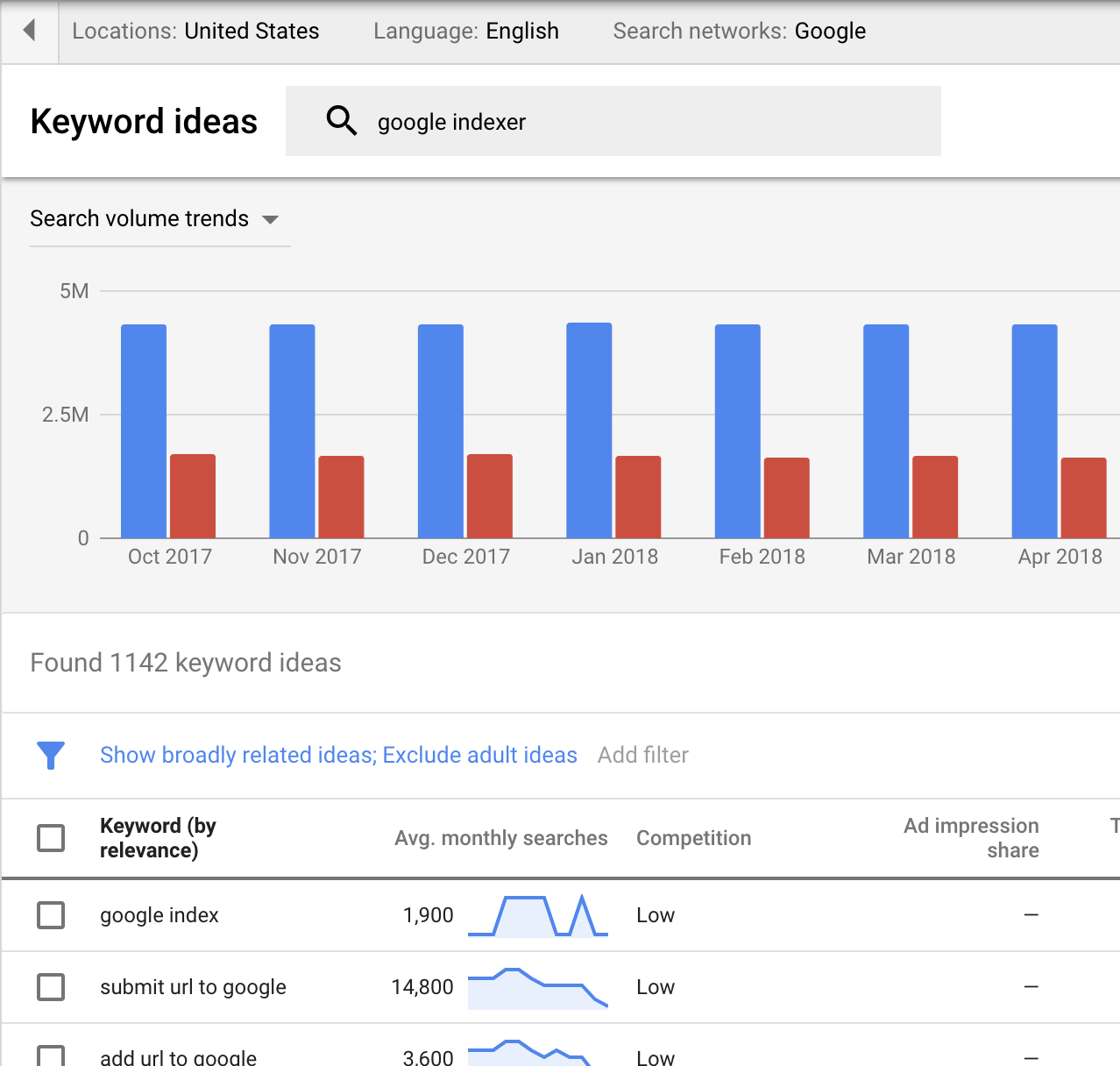
Google didn’t even return the word “google indexer”. It only shows volume for the keyword “google index”. These are close variants in action. These are two different keywords with 2 different search volumes, but Google will now only show 1 search volume for both of them.
Now months later Google is finally showing search volume for Google Indexer instead of Google Index. The problem is these things change all of the time and it’s impossible to know when Google will decide or won’t decide to group the close variants.
Let’s go back to that original example. The keywords “SEO” and “Search Engine Optimization”. Take a look at what happens when I try and get the search volume for the keyword “search engine optimization”.
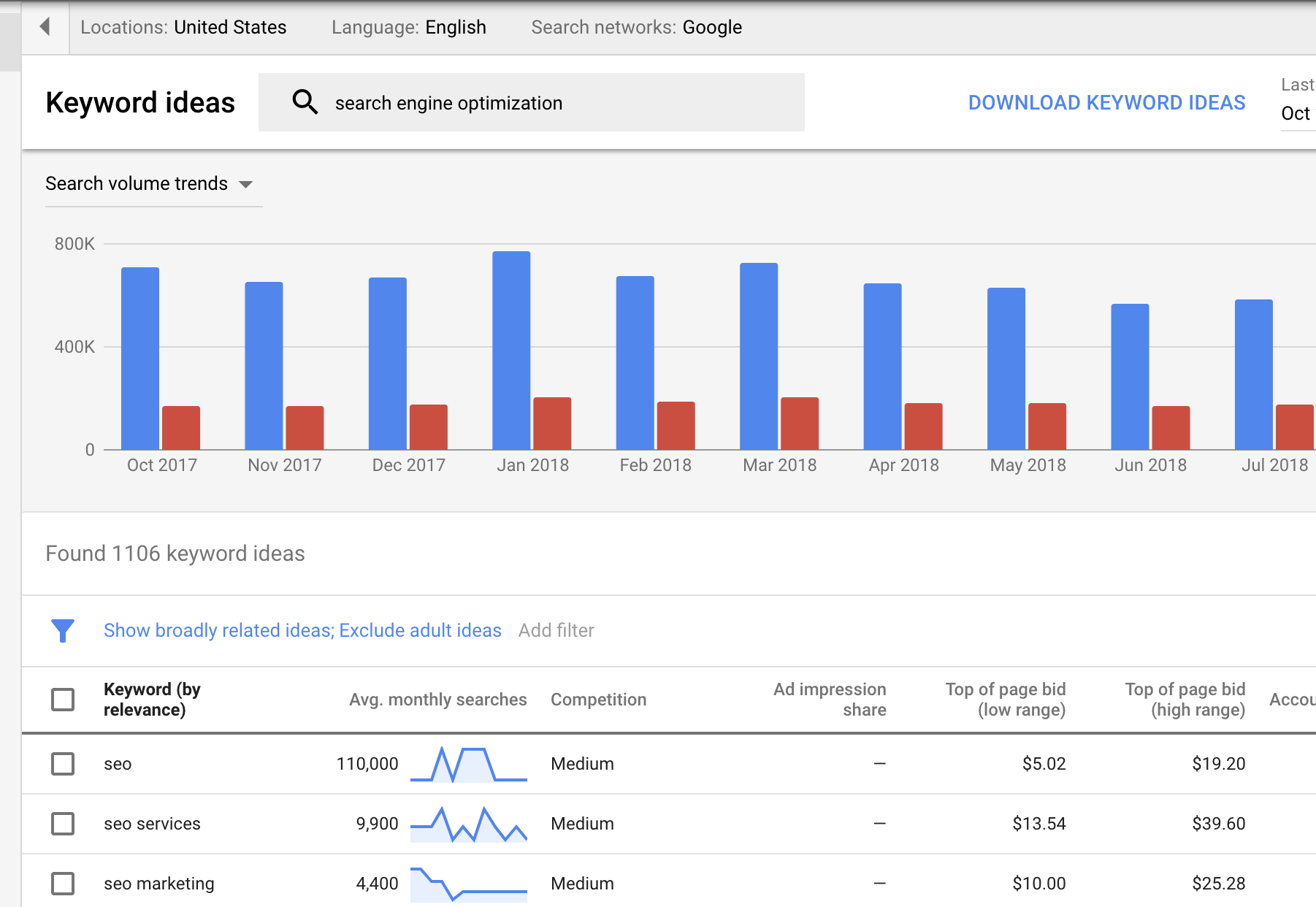
Once again, the same thing! This is terrible for SEO. Google no longer shows accurate search volumes for a huge amount of keywords. Even when they do show the search volume we aren’t sure if it’s the search volume for that exact keyword or many keywords search volumes grouped together and shown as one.
Also sometimes they may under report search volumes for keywords with minimal ad spend or sensitive topics. We are basically flying blind when it comes to choosing certain keywords. Until now!
True Volume
After months of research and tweaking, we are finally able to get back the true search volume for many of these close variant keywords. That’s why we are calling this “True Volume”. It’s a true representation of the monthly searches for keywords that Google no longer provides accurate info on. How does it work?
We have taken our huge keyword database and search volumes, collected over the years (before Google started grouping close variants). We’ve combined this with search trends data and other 3rd party search data to give, what we feel is as accurate as ever search volume for these keywords.
Currently, our True Volume algorithm is working mostly for English language keywords searched with the “All Locations”, “United States” and “United Kingdom” location settings. Very soon we will expand it to more locations, then down the road, we hope to expand it to more languages other than English. Also, we are constantly adding to our database of close variant keywords, so more and more keywords will show the True Volume as time goes on.
Our True Volume algorithm figures out the actual search volume of a close variant keyword and then rounds it into the usual Google search volume “buckets”. Google has used the same buckets to represent search volume for years now. For example, Google doesn’t say the search volume of the keyword is 2787. It instead shows 2900 (that is a search volume bucket). We’ve decided to do the same. This is for a few reasons.
- These Google search volume buckets are what we are used to seeing and make for better comparisons to keywords that aren’t close variant keywords.
- All search volumes are always just estimates. We believe this is why Google “buckets” search volumes to begin with. There is no exact “definite” search volume. These buckets give you more of an overall range of a search volume rather than an exact volume that could be wrong due to normal fluctuations.
- All in all, we just think it looks weird showing search volumes like 467,837!
What this all means
To sum it up, what this means is you are getting much more accurate search volume information. Even more accurate than Google. You may notice some keywords don’t match Google’s search volume figures. This is because Google is showing inaccurate search volume for most keywords now (close variants) and we are making things more accurate for you.
We are not the first tool to take this step into ungrouping close variants. Most of the major players in the industry MOZ, Ahrefs, etc.. have done the same. We took our time to ensure that our algorithm was very accurate. This change may save you a lot of heartache when it comes to targeting the correct keywords!
- How to Do Keyword Research for Free: Best Free Keyword Research Tools in 2024 - December 13, 2024
- Benefits of Keyword Clustering: Why is it Important to Group Relevant Keywords Together? - December 13, 2024
- What is Keyword Density in SEO and Its Importance - December 13, 2024

